“We are no longer collecting art we are buying individuals.” That’s poet Rene Ricard in “The Radiant Child” (Artforum, 1981). In the listserv era, when poetry was simply a genre and a poet was faceless – maybe. Now, though, it’s impossible to separate the poet from the poetry. We are no longer buying poetry books; we are buying poets. In 2025, poets, like artists, are brands, and even models are poets, and models are brands and also dating poets. Jaw-dropping. In “Famous Poets” (2020), Michael Hofmann writes:
Poems that, because anyone might have written them,
appeal to everyone.
Hofmann describes a kind of poet that hasn’t existed since at least the mid-90s, yet there’s still some truth to the proverb. These are global-affairs poets witnessing atrocities we’re talking about. Poets don’t witness atrocity anymore; they simulate it. In a recent interview, Ariana Reines said, “I also happen to believe that literally anybody can and should practice this artform.” An echo of Hofmann: a lifestyle, an elusive privilege, an embodiment of poetry’s freedom and passion to roam, no longer bound to a single body, but spilling out into the populace.
I love famous poets. I love the way they move me. The field is crowded, though, because poetry is a democratic artform. The sun and moon must be visible at once for the poem we desire to rise from sheafs of lifeless texts. That poem has charge, shines out, and you see the potential for poetry to become a cynosure. The poem seems to say, You’re looking at the wrong thing. You should be looking at me. In fact, you should only look at me, forever, like Cristine Brache writes in “Vow”:
Love.
Only me.
Only me forever.
The poetry world has played itself; Brache is just playing herself. She’s double entendre. Art and life; glamour and tragedy. Her poems are original in the way they make a splash. They’re the fizz in a tall glass.
Her Goodnight Sweet Thing, published by anonymous gallery last year, opens with an epigraph, a poem really, by Dorothy Stratten, the stunning model and actress who was murdered at twenty by her ex, the nightclub promoter Paul Snider, in 1980. The poem is a longing, passionate dream of Los Angeles showbiz, where “people are the games.”
From the volume’s title poem:
Still, every time
we go to bed,
we go to war.
In the 1950s, movies were just groups of toughs in suits sitting around the club smoking. Every now and then, a woman would show up, and everybody would go crazy. Stratten was a starlet, and every guy went mad; we know how it ends.
In “Hi Name / Forgettable Face,” Brache writes:
please chill it with the brains
don’t get too excited, or
you better hold yourself
space jam
looney tunes as power animals
you can be taz
you can relate to taz, I think
Street-lit trailblazer Iceberg Slim wrote something like you would never find a real pimp in the gutter. In Bob Fosse’s Stratten biopic, Star 80 (1982), sleaze king Eric Roberts portrays Snider, the con man, and every gesture oozes desperation. Snider, the Tasmanian Devil, going buck wild.
Brache, in “The Killing Fields”:
The Eighth Deadly Sin—
Female Beauty
If poetry’s going to be a waste of time, it should be a shimmering waste. I like Brache’s poetry because she makes sport of grief. The distresses are charming, the sadnesses beautiful, the crises of faith crushing, and unanswered prayers don’t dissuade the speaker’s belief in Love, even in a trustless society.
Cristine Brache & Sigrid Lauren, Goodnight Sweet Thing, 2024. Performance documentation, “3hd: See No Evil,” Berlin
Both courtesy: the artists and Creamcake. Photos: Ink Agop
We’re coming off a weird culture trip. After a decade of division, I’m positive about the future. Artists have been excoriated until they’re raw, stinging, exposed. They’re afraid of getting hurt. People forget. Time is not the great healer – art is. Poetry is. This joint is. This faded image. This microphone. This “China Video Diary.”
The poetry world has lagged behind the art world, but poetry is an artform. Modeling is an artform. Big picture: There’s no medium but media anymore. Ricard: “The greatest thing is to come up with something so good it seems as if it’s always been there, like a proverb.” Recall Hofmann’s lines about everywoman appeal.
Brache’s collection begins with “Happy New Year”:
Please don’t hurt me.
Please don’t hurt me.
Please don’t hurt me.
I hear the voice of the author, the voice she utters only interiorly. “I’m really excited to show you who I am deep down inside.” It’s nice to be communicated to. I feel you. Isn’t that what poetry does best? It makes us feel like we’re the only ones who get it.
Nobody makes it small. They make it big, or they don’t make it. Those who languish in steep twilight, like falling down a bottomless well, didn’t exploit themselves enough. They never got to find out “Fame will set you free.”
Rock prodigy Fiona Apple’s MTV Video Music Awards acceptance speech is a poem, repurposed by Brache as “Oscar Acceptance Speech.” The author’s sex life is a poem. (“When am I ever in my panties for myself?”) Online is a poem. A photograph is a poem. Filmmaking, which Brache also does, is a poem (see: Marilyn in the Corner, 2024). Poetry needs to be something or do something or make something happen.
Social media collateral: Brache’s birthday party on Instagram. The artist’s friends present an incandescent birthday cake. Confetti, champagne, balloons. The shy poet smiles sweetly, slightly self-conscious. Her long, dark tresses brushed slightly off to the side of her face, performing for our pleasure. That’s who we are as readers. We think, Do you see me now?
Brache gels new songs, colors, feelings. The poems pull you in with emotive thrust: “Play me like / a slot machine.” The book’s cream pages, unfold the poet’s anagogical vision, feminine privilege, role construct, and power. It’s auditory. It’s attitude. Her inventive use of cliché, pun, and sick tropes are like roaming the hallways of an abandoned schoolhouse. “Language ushers everything outside of you,” she writes in “Crisis of Faith.”
Director Peter Bogdanovich, who was dating Stratten at the time of her murder, wrote a book on the subject titled The Killing of the Unicorn (1984). As a studio artist no less than as a poet, Brache is striving to keep that unicorn alive. In a new series of encaustic paintings of Stratten and other Playboy Bunnies, choice palettes glow through muted wax surfaces to evoke the passing of time, aspirations, shrugged-off selves. They are rather breathtaking in person, pared down to clear a space for key figures and themes in an agglomerated, only-in-America cultural imagery.
At the core of Brache’s many-faceted work is an interest in varieties of womanhood foisted upon oneself by society or worn as a mask. Stratten endures as a vessel of collective desires, false hopes, and myth; yet, she still gives off a vibe of unvanquished stardom in the paintings.
Cristine Brache, Almost Blue, 2024, oil, ink, and encaustic on cotton and wood, 44.5 x 35.5 x 4 cm
Cristine Brache, Talent Showcase, 2024, oil, ink and encaustic on silk and wood, 83.1 x 66.6 x 4 cm
From “Last Night I Felt Afraid to Die”:
In another life, I find my fantasy
where the void respects me forever.
The poems range across the years, defining her individuality, her existential realness. In “What You Have Inside Is What You Have to Sell,” she writes, “I’ll show you how I act when no one is around.” Can you ever really know a text the way an author knows it?
From “You Say You’re Jungian and Breathe”:
men like an hourglass figure
and its cream-colored sand
can exactly calculate
the amount of time it takes
for you to stop paying attention to me
The book is a page-turner, and approaching a final line, its lyrical close, I get the sensation I’m about to drop a wine glass onto the carpet. Memory: a scene from Todd Haynes’s Safe (1995), wherein Carol (Julianne Moore), comes home to find a black couch in the living room. “We did not order black!” she says, aghast. Star material about to drop the mail. I get vertigo reading Goodnight.
From “Background Actors”:
A never-ending song;
A reverberation in time.
Brache’s poems are confidential, interior, yet mirrored; she knows you’re watching, and she’s still vulnerable for you. Her aesthetic surface unwraps; the unfoldment of higher selves is felt as ascending self-disclosure, from Poems (2008–18) to Goodnight Sweet Thing’s commitment to poetry as an artform. The visual is widescreen, running the page with “somatoform and regret.”
The author is from Florida – where anything goes. Girls go wild in “Spring Break,” “Cancun,” and “Long Winter.” “Headlines” is a kind of sound system poem, a bachata of bad news. When dimensions of an artwork show up in “Gallantly Say What You Are,” they merely imitate tactility, because textually, they’re the measure of the poet’s disappointment (“77 lbs”). The stakes high, personal imagery unspools to form the poem for one’s ideal Self. It is a gestalt practice, her wow factor. “I want to master communication …” she remarked to Holly Childs in 2018.
For true poets, the line between art and life is always fuzzy. The poet writes the poem or creates the poem; there’s no removing the writer, the artist, from the text. No boundaries. They are the potential text. Composer and director. It’s double-edged because not all great personalities are great writers; many are just great self-promoters. Who moves in spirit and being? You be the judge. But we need famous poets, and we need them to be good.
If alchemy is the one true art, then what do you think Cristine Brache puts into her crucible? What’s a life outside the mind? Pure being. In Goodnight Sweet Thing, Brache inhales the audience as a thinker, writer, artist. She absorbs them into her image. I think she’s sincere when she writes, “No one can take these words away from me.” This is the freedom to be seen; to be a big star.
___
Cristine Brache, Goodnight Sweet Thing [recto & verso], 2024. Photo: Colin Padulo
Cristine Brache’s Goodnight Sweet Thing is an imprint of anonymous Printing and is available for purchase via Metalabel.


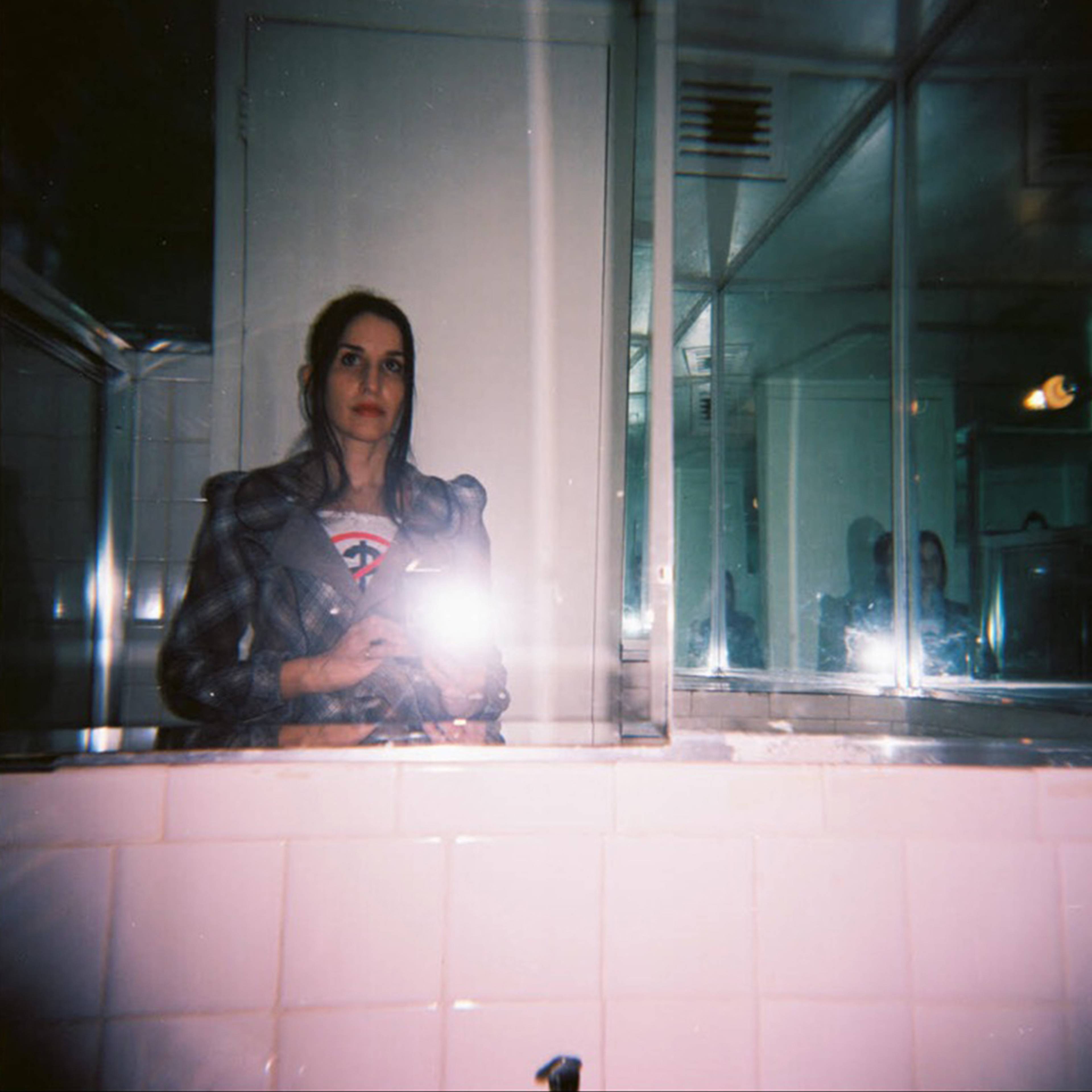
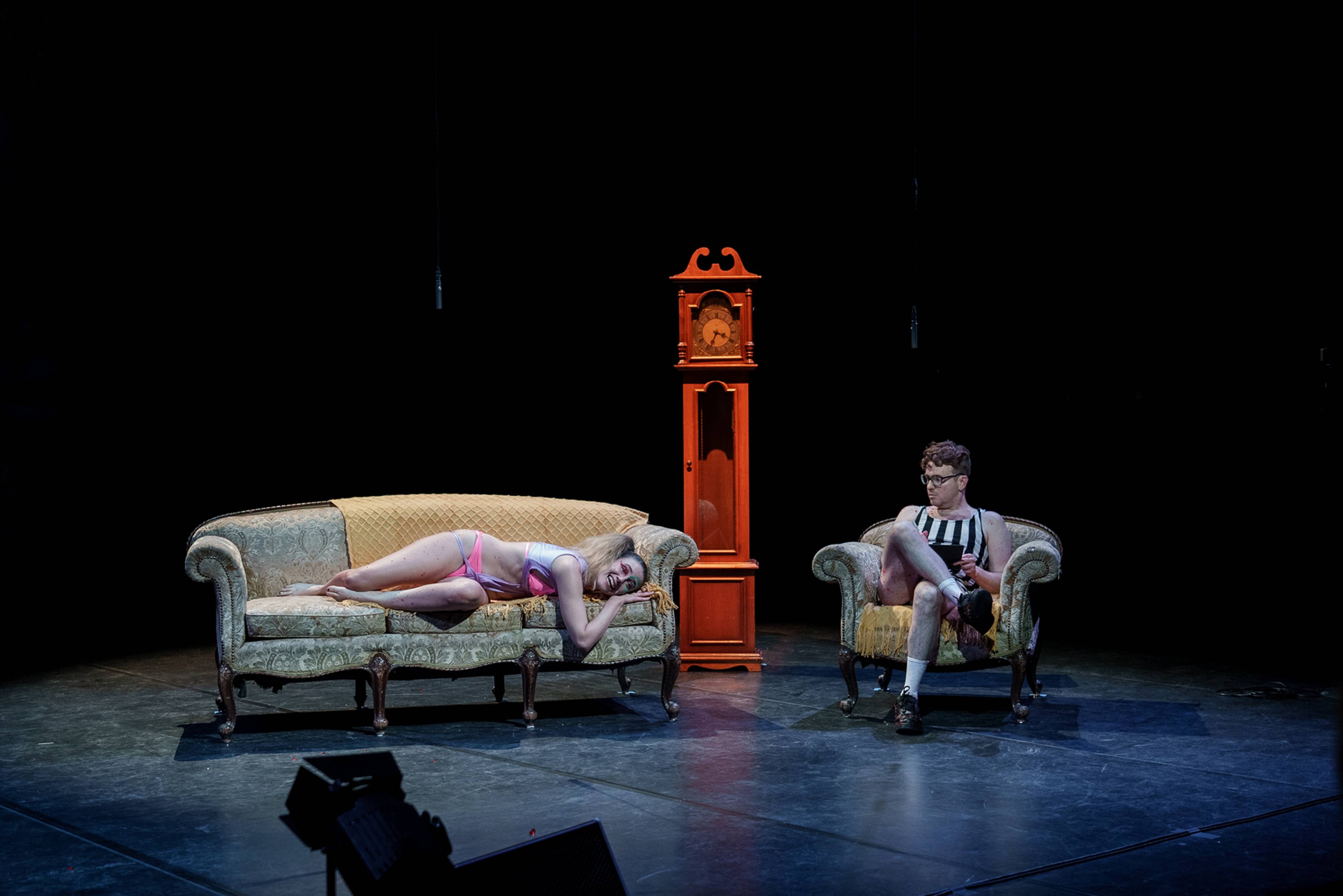
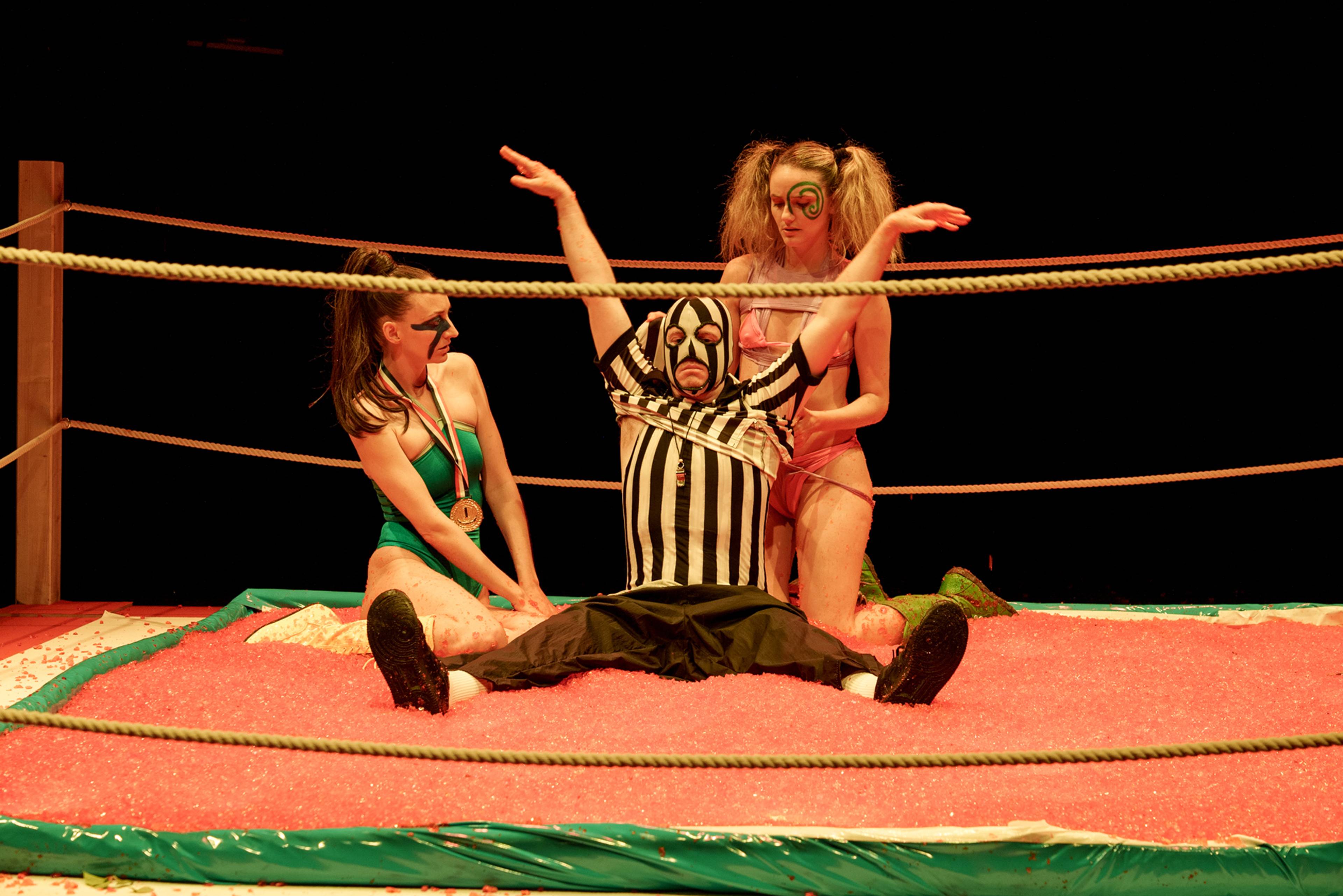
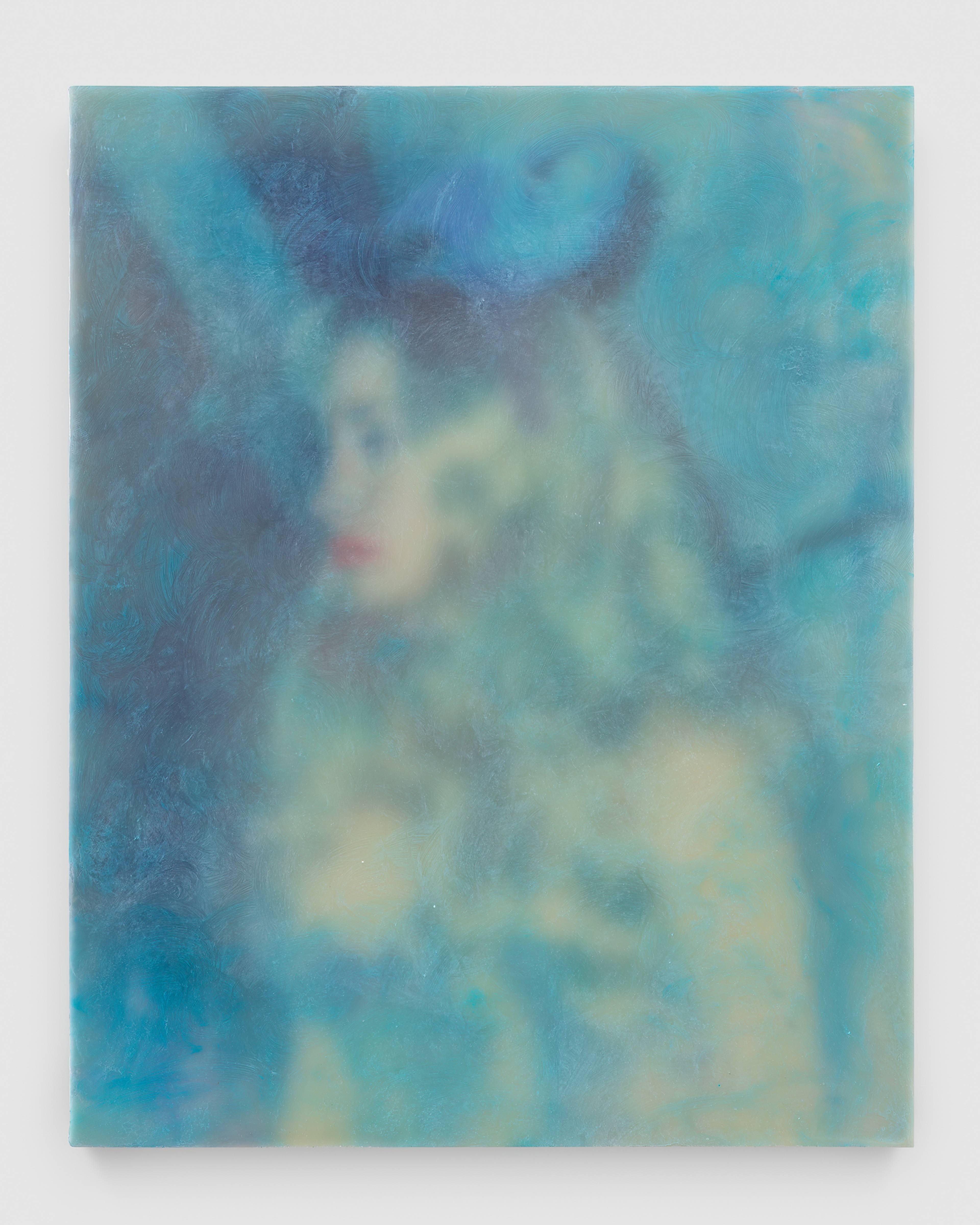
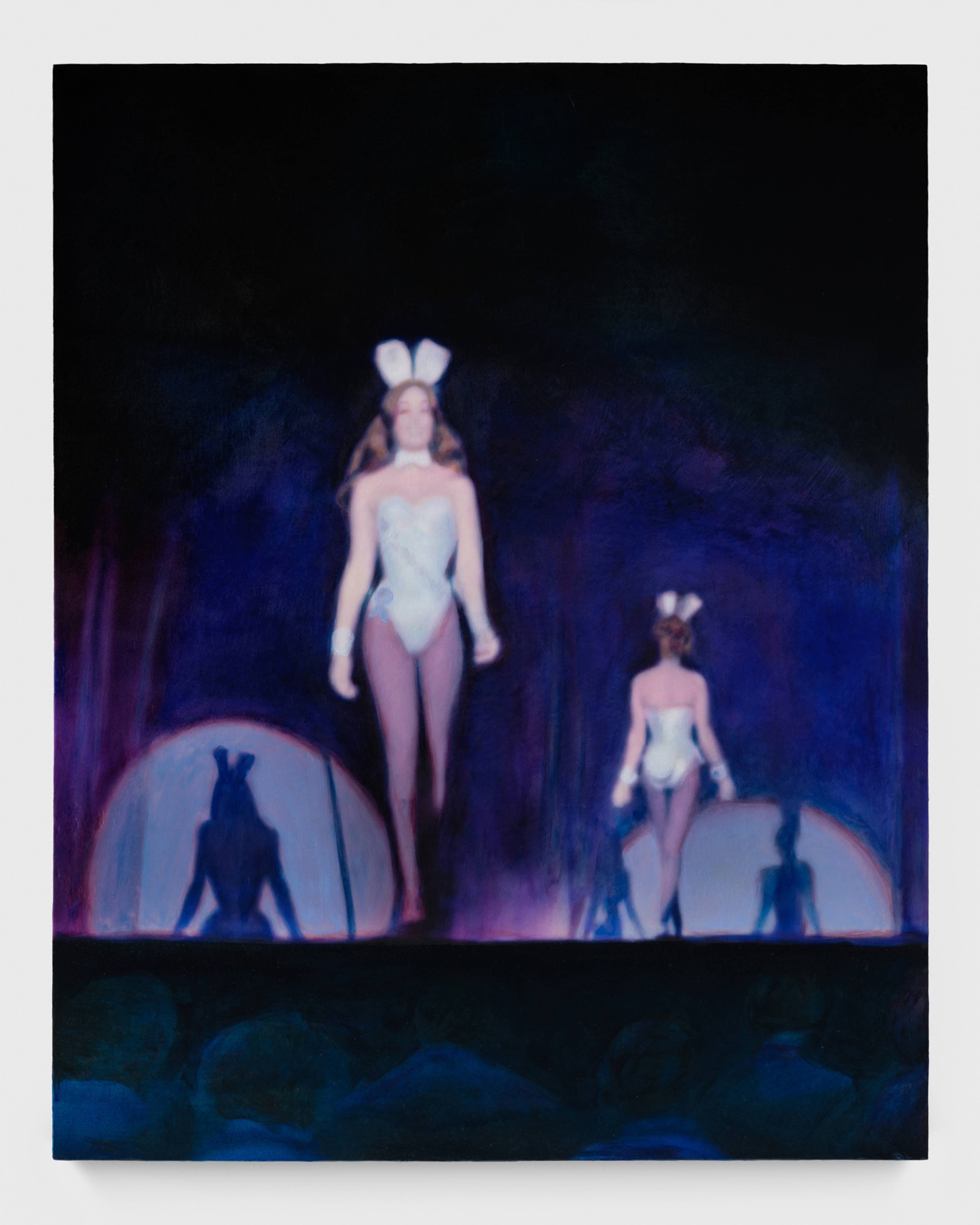
![Cristine Brache, Goodnight Sweet Thing [recto & verso], 2024](https://cdn.sanity.io/images/syotmk9q/production/ca95f125c82a127b92d0bce4d34ccb491904842d-2000x1333.jpg?w=3840&q=70&fit=clip&auto=format)